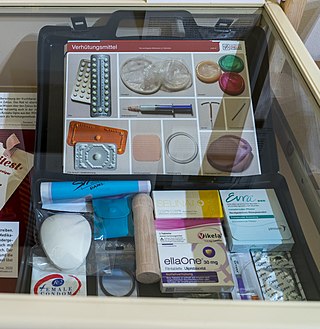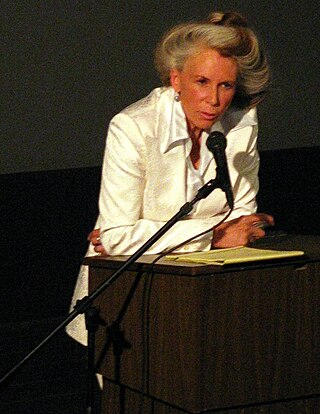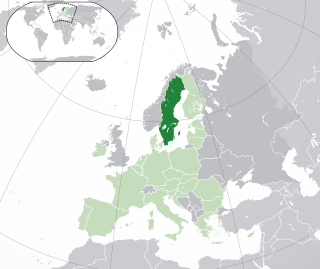Related Research Articles

Lesbian, gay, bisexual, and transgender (LGBT) movements are social movements that advocate for LGBT people in society. Although there is not a primary or an overarching central organization that represents all LGBT people and their interests, numerous LGBT rights organizations are active worldwide. The first organization to promote LGBT rights was the Scientific-Humanitarian Committee, founded in 1897 in Berlin.

The sexual revolution, also known as the sexual liberation, was a social movement that challenged traditional codes of behavior related to sexuality and interpersonal relationships throughout the developed Western world from the 1960s to the 1970s. Sexual liberation included increased acceptance of sex outside of traditional heterosexual, monogamous relationships. The normalization of contraception and the pill, public nudity, pornography, premarital sex, homosexuality, masturbation, alternative forms of sexuality, and the legalization of abortion all followed.

Sex education, also known as sexual education, sexualityeducation or sex ed, is the instruction of issues relating to human sexuality, including human sexual anatomy, sexual activity, sexual reproduction, safe sex and birth control, sexual health, reproductive health, emotional relations and responsibilities, age of consent, and reproductive rights. Sex education that includes all of these issues is known as comprehensive sex education, and is often opposed to abstinence-only sex education, which only focuses on sexual abstinence. Sex education may be provided as part of school programs, public health campaigns, or by parents or caregivers. In some countries it is known as "Relationships and Sexual Health Education".

Asexuality is the lack of sexual attraction to others, or low or absent interest in or desire for sexual activity. It may be considered a sexual orientation or the lack thereof. It may also be categorized more widely, to include a broad spectrum of asexual sub-identities.

Pansexuality is sexual, romantic, or emotional attraction towards people of all genders, or regardless of their sex or gender identity. Pansexual people might refer to themselves as gender-blind, asserting that gender and sex are not determining factors in their romantic or sexual attraction to others.

The homophile movement is a collective term for the main organisations and publications supporting and representing sexual minorities in the 1950s to 1960s around the world. The name comes from the term homophile, which was commonly used by these organisations. At least some of these organisations are considered to have been more cautious than both earlier and later LGBT organisations; in the U.S., the nationwide coalition of homophile groups disbanded after older members clashed with younger members who had become more radical after the Stonewall riots of 1969.
Sex-positive feminism, also known as pro-sex feminism, sex-radical feminism, or sexually liberal feminism, is a feminist movement centering on the idea that sexual freedom is an essential component of women's freedom. They oppose legal or social efforts to control sexual activities between consenting adults, whether they are initiated by the government, other feminists, opponents of feminism, or any other institution. They embrace sexual minority groups, endorsing the value of coalition-building with marginalized groups. Sex-positive feminism is connected with the sex-positive movement. Sex-positive feminism brings together anti-censorship activists, LGBT activists, feminist scholars, producers of pornography and erotica, among others. Sex-positive feminists believe that prostitution can be a positive experience if workers are treated with respect, and agree that sex work should not be criminalized.

Catharine Alice MacKinnon is an American feminist legal scholar, activist, and author. She is the Elizabeth A. Long Professor of Law at the University of Michigan Law School, where she has been tenured since 1990, and the James Barr Ames Visiting Professor of Law at Harvard Law School. From 2008 to 2012, she was the special gender adviser to the Prosecutor of the International Criminal Court.
Abortion in Sweden was first legislated by the Abortion Act of 1938. This stated that an abortion could be legally performed in Sweden upon medical, humanitarian, or eugenical grounds. That is, if the pregnancy constituted a serious threat to the woman's life, if she had been impregnated by rape, or if there was a considerable chance that any serious condition might be inherited by her child, she could request an abortion. The law was later augmented in 1946 to include socio-medical grounds and again in 1963 to include the risk of serious fetal damage. A committee investigated whether these conditions were met in each individual case and, as a result of this prolonged process, abortion was often not granted until the middle of the second trimester. As such, a new law was created in 1974, stating that the choice of an abortion is entirely up to the woman until the end of the 18th week.

Lesbian, gay, bisexual, transgender (LGBT+) rights in Sweden are regarded as some of the most progressive in Europe and the world. Same-sex sexual activity was legalized in 1944 and the age of consent was equalized to that of heterosexual activity in 1972. Sweden also became the first country in the world to allow transgender people to change their legal gender post-sex reassignment surgery in 1972, whilst transvestism was declassified as an illness. Legislation allowing legal gender changes without hormone replacement therapy and sex reassignment surgery was passed in 2013.
Pornography has been defined as sexual subject material "such as a picture, video, or text" that is intended for sexual arousal. Indicated for the consumption by adults, pornography depictions have evolved from cave paintings, some forty millennia ago, to virtual reality presentations. A general distinction of adult content is made classifying it as pornography or erotica.

Elise Ottesen-Jensen, also known as Ottar, was a Norwegian-Swedish sex educator, journalist and anarchist agitator, whose main mission was to fight for women's rights to understand and control their own body and sexuality. She was a member of the Swedish anarcho-syndicalist union Central Organisation of the Workers of Sweden. Her followers consider her a pioneer in the field of women's rights and feminism.
Human sexuality is the way people experience and express themselves sexually. This involves biological, psychological, physical, erotic, emotional, social, or spiritual feelings and behaviors. Because it is a broad term, which has varied with historical contexts over time, it lacks a precise definition. The biological and physical aspects of sexuality largely concern the human reproductive functions, including the human sexual response cycle.

Erika Lust is a Swedish erotic film director, screenwriter and producer. Since the debut of her first indie erotic film The Good Girl in 2004, Lust has been cited as one of the current leading participants in the feminist pornography movement, asserting that an ethical production process sets her company apart from mainstream pornography sites. Lust has stated that she finds no issue in calling her films porn, since she expects viewers to be sexually aroused, unlike other directors of erotic films who make a distinction between their work and porn even when both types contain sexually explicit scenes. In addition to directing and producing a number of award-winning films, she has written several books.

Bisexuality is a romantic or sexual attraction or behavior toward both males and females, to more than one gender, or to both people of the same gender and different genders. It may also be defined to include romantic or sexual attraction to people regardless of their sex or gender identity, which is also known as pansexuality.

The Swedish Association for Sexuality Education is a Swedish nonprofit organization that works with public opinion formation on sexual and reproductive health and rights as well as information and education about sexuality and relationships. One of RFSU's main issues is the right to free abortion. The current president is Lina Fridén and Secretary-General is Ingela Holmertz.
Sten Philipson is a Swedish ethicist and Professor of Ethics and Value Research at Strömstad Academy. Born 1946. Cand. theol. 1969, Uppsala University. Master's degree from Harvard University 1981. Doctorate from Uppsala University 1982. His thesis contained among other topics an analysis of the philosophy of Alfred North Whitehead and its application to science. In 1983 Sten was appointed assistant professor of faith and ideology at Uppsala University. Sten Philipson has written thirteen books on various subjects and published a number of articles relating to ethics and value research, particular concerning issues within healthcare. His book Kan en värdegrund ge framgång? was published in December 2011.
Abdirizak Waberi is a Somali–Swedish Moderate Party politician. He was a member of the Swedish parliament from the 2010 election until the next election in 2014, representing the Gothenburg Municipality constituency.

Max Julius Carl Alexander Hodann was a German physician, eugenicist, sex educator and Marxist, "the best-known and most controversial medical sex educationalist in the Weimar Republic". He wrote for a working-class readership and for children. After 1933, as a refugee from Nazi Germany, he lived predominantly in Norway and Sweden.